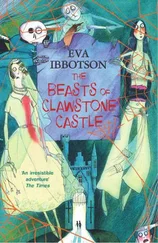Ibbotson, Eva - Magic Flutes
Здесь есть возможность читать онлайн «Ibbotson, Eva - Magic Flutes» весь текст электронной книги совершенно бесплатно (целиком полную версию без сокращений). В некоторых случаях можно слушать аудио, скачать через торрент в формате fb2 и присутствует краткое содержание. Год выпуска: 2011, Издательство: Macmillan Publishers UK, Жанр: Старинная литература, на английском языке. Описание произведения, (предисловие) а так же отзывы посетителей доступны на портале библиотеки ЛибКат.
- Название:Magic Flutes
- Автор:
- Издательство:Macmillan Publishers UK
- Жанр:
- Год:2011
- ISBN:нет данных
- Рейтинг книги:3 / 5. Голосов: 1
-
Избранное:Добавить в избранное
- Отзывы:
-
Ваша оценка:
- 60
- 1
- 2
- 3
- 4
- 5
Magic Flutes: краткое содержание, описание и аннотация
Предлагаем к чтению аннотацию, описание, краткое содержание или предисловие (зависит от того, что написал сам автор книги «Magic Flutes»). Если вы не нашли необходимую информацию о книге — напишите в комментариях, мы постараемся отыскать её.
Magic Flutes — читать онлайн бесплатно полную книгу (весь текст) целиком
Ниже представлен текст книги, разбитый по страницам. Система сохранения места последней прочитанной страницы, позволяет с удобством читать онлайн бесплатно книгу «Magic Flutes», без необходимости каждый раз заново искать на чём Вы остановились. Поставьте закладку, и сможете в любой момент перейти на страницу, на которой закончили чтение.
Интервал:
Закладка:
Oh, fortunate, fortunate Guy to see what he would see tonight!
‘I cannot go on!’ announced Raisa, squirting throat spray across the dressing-room. ‘My uvula it is septicked with pimpules and my head she explodes!’
‘I’ve forgotten every single line,’ declared Herr Berger, emerging yet again from the lavatory. ‘I can’t remember a single word. After “In diesen heil’gen Hallen”, I can remember nothing.’
‘Yes, you can, Herr Berger,’ said Tessa soothingly to the shivering bass. ‘After “In diesen heil’gen Hallen” comes “kennt man die Rache nicht”, and anyway Herr Witzler himself will be in the wings.’
‘I am schweatink like a porker; I am ill . . .’
‘Where’s Papageno’s bird-cage, Tessa – for Christ’s sake, where has it gone?’
‘That blasted flautist’s drunk again. Can you rustle up some black coffee, ’ighness – and quick!’
‘The Button!’ screamed Klasky. ‘Where’s Beethoven’s button?’
‘I have it here, Herr Klasky.’ Tessa, as always, was everywhere; comforting, contriving, finding what was lost.
‘First call for beginners, ladies and gentlemen. First call for beginners.’
Jacob wiped his brow. ‘Stay with me, Mozart,’ he begged.
‘He will, Herr Witzler, I know he will,’ said Tessa fervently. ‘I can feel him sort of floating over the theatre, wishing us well.’
Jacob smiled at his under wardrobe mistress and, in a rare gesture of affection, laid his hand briefly on the silken head. ‘You must go out front now or your aunts will be worried.’
‘No. Let me stay, please. I belong here now.’
But Jacob was adamant. ‘No. We shall need you in the interval, but now get into your box, my little princess, and we will play to you.’
The third prince had built his theatre after a visit to Versailles. Dazzled by the blue-green marble, the aquamarine silk curtains, the Corinthian columns with which the Sun King had adorned his opera house, the prince had copied the sumptuous colour scheme of blue and gold, hung a hundred Bohemian chandeliers across the auditorium and ordered his griffin, his lily and his glove to be emblazoned on the front of every box.
It was in this exquisite theatre that Guy’s guests now waited to hear an opera that was the quintessence of Austrian life. For the composer, whom the ancestors of this very audience had spurned, insulted and underpaid, was now more uniquely ‘theirs’ than any other. Prince Monteforelli could remember his grandfather telling of the time he had been taken, as a little boy, to the Theater an der Wieden on the night when Mozart himself went backstage to play Papageno’s glockenspiel. Now, deaf or not, he intended to hear his thirty-second Magic Flute, if need be through his very bones.
How distinguished he looks, thought Waaltraut, down in the stalls, craning her head yet again at the main box, canopied in gold, in which Farne sat. So dark, so brooding. But why is he alone?
The same question was on the lips of most of the audience as they gazed at the solitary figure of the Englishman who, even in repose, seemed to have a knack of commanding attention in every gathering in which he found himself. Where was the widow?
‘Ah, Putzerl,’ said Maxi as Tessa, who had been waylaid by her old nurse wielding a hairbrush, slipped into the box which Maxi was sharing with the aunts. She was in dark green velvet with a big lace collar, her auburn eyes shining with excitement, and even Maxi, unmusical as he was, suddenly found himself looking forward to what lay ahead.
It was time, now. The audience was falling silent. And then a rustle as heads tilted to look up at Farne, whispers of ‘There she is!’
And in the box set aside for Pfaffenstein’s princes Guy turned, rose and caught his breath.
Nerine continued to stand quite still, one hand holding back the blue silk of the curtain. Her eyes were on his – wide, questing, the mouth a little tremulous.
It was she, now, who said softly, ‘Do you remember?’
Guy could not speak at first, only reach for her hand and carry it to his cheek. She was dressed exactly as she had been then: the same dusky ringlets danced on her bare throat; the dress with its tiny, starry flowers was the same; she held, as she had held then, the smallest, most delicate of fans. Standing there, seeking his approval, his delight, she was seventeen again; the world had just begun – all life, all hope was before them.
‘I remember,’ said Guy – and she had never heard in any man’s voice what was now in his.
The orchestra entered, followed by Herr Klasky. Guy pulled out a chair and, smiling her thanks, she seated herself. The conductor raised his baton.
And in that moment, deeply, utterly and most enchantingly, Nerine sighed.
What makes a truly great performance? What blend of grinding work, talent and sheer luck? Is there a conjunction of planets that needs to be evoked? Does the audience send back, across the footlights, some mysterious wave of empathy which the players absorb into themselves?
What alchemy, on this night of nights, turned the fat little Italian, Mastrini, into a prince able to express a love so pure, so ardent that it transcended passion itself? What made the hausfrau from Dresden give to the Queen of the Night’s aria, with its cruel F in alt, an icy, brilliant glitter that brought a shiver to her listeners? And Papageno, the birdcatcher, whose simple ditties have become folk-song all over Europe . . . Papageno can be a clown, a simpleton, the Common Man. This Papageno, an unknown baritone whom Witzler had promoted from the chorus, was all of these and much, much more. As he finished ‘Ein Vogelfanger bin Ich, ja’ – the song that Mozart himself hummed through cracked lips as he lay dying – the audience stirred like the sea, and Monteforelli dabbed his eyes.
The Queen of the Night vanished into the split rock, the stage lift worked, the prince and the birdcatcher set out on their adventures. The scene changed and in a room in Sarastro’s palace lay Pamina, abandoned and afraid. And here was alchemy again as the quarrelsome, rapacious Raisa became a young girl whose simplicity and seriousness was affirmed in every limpid note.
Felicity followed felicity. The duet between Pamina and the birdcatcher as they preached a tender sermon on conjugal love ended in a torrent of clapping which Klasky dissolved as he took his players forward into the solemnity and seriousness of the High Priest’s temple. Darkened by trombones, by muted trumpets and muffled drums, the music spoke now of the poetry of man’s existence, of the necessity of suffering and endurance in the creation of a perfect love.
‘I will be nicer to Mother,’ thought the Countess Waaltraut, and the acid-penned critic Mendelov, who had come from Vienna, closed his notebook and shook a wondering head.
Guy was beyond thought. He had forgotten even Nerine, held as if in a vice by the miracle that was this music.
Solemnity dissolved once more in laughter as Papageno played his magic bells and the delectable animals that were the Heidis danced to Tamino’s flute. And then Sarastro himself, for whom Mozart wrote the most profound and fiendishly difficult arias in all music, singing of ordeals to be overcome and trials to be met before the lovers could be united . . . the great C major chorus extolling courage and virtue . . . and the curtain fell on Act One of Jacob Witzler’s Magic Flute.
It came down to a thunderclap of applause, to the stamping of ancient, rheumatic feet, to a chorus of ‘Bravo!’ and ‘Bis!’ Guy caught a glimpse of the small shape that was Tessa slipping out of the neighbouring box before he turned to Nerine.
‘I won’t ask you how you enjoyed it,’ he said when he could trust himself to speak again. ‘I can see it all in your eyes.’
Читать дальшеИнтервал:
Закладка:
Похожие книги на «Magic Flutes»
Представляем Вашему вниманию похожие книги на «Magic Flutes» списком для выбора. Мы отобрали схожую по названию и смыслу литературу в надежде предоставить читателям больше вариантов отыскать новые, интересные, ещё непрочитанные произведения.
Обсуждение, отзывы о книге «Magic Flutes» и просто собственные мнения читателей. Оставьте ваши комментарии, напишите, что Вы думаете о произведении, его смысле или главных героях. Укажите что конкретно понравилось, а что нет, и почему Вы так считаете.












